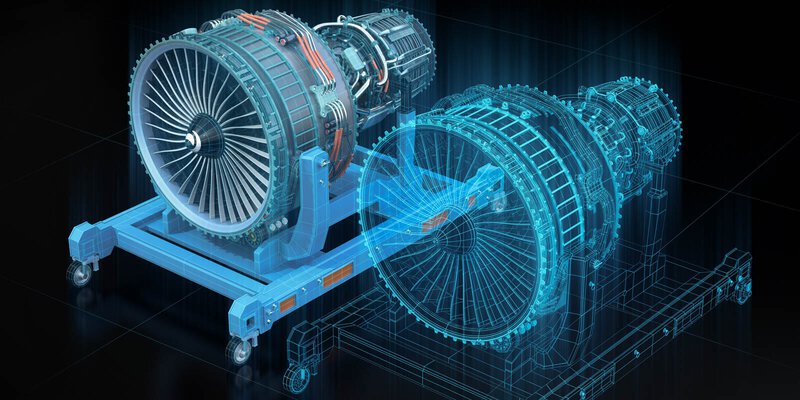Scientists are able to produce a digital twin of a human to improve their understanding of our complex body systems. Digital version of humans will be created by data generated by various diagnostic efforts.
New Delhi: Every few months, a set of new technology phrases and jargon dominates conversations and debates. The pace of change means that civil society has to be far more alive to new innovations which will influence its future.
As the march of technology accelerates, let’s take a look at what to expect in 2022. The Institute of Engineering and Technology (IET) has identified the top new technology which will impact business and personal lives this year.
“The expert working groups identified the key technologies based on the three parameters and framework. All technologies were assessed on business potential; innovation level and take off stage opportunity,” says Shekhar Sanyal, Director and Country Head IET India.
Here are the main five categories of technology which will become prominent in 2022. These will impact nearly all sectors. Some are new ideas while others are significant improvements over current options.
IMMERSIVE TECHNOLOGIES AND METAVERSE: Be a part of every experience and activity. Even as augmented and virtual reality grow rapidly with increasing business applications, many versions and levels have created the overarching concept of extended reality or XR. Says computing firm HP, “XR tech takes the human-to-PC screen interface and modifies it, either by 1) immersing in the virtual environment (VR), 2) adds to, or augments, the user’s surroundings (Augmented reality), or 3) both of those (Mixed Reality).” In XR, X also stands for the new emerging technologies that will allow higher levels of realistic immersive experience. These will have applications in what is called metaverse, the digital universe. From independent pockets of immersive experience and digital activities, metaverse can connect all digital activities with each other. For example, from online gaming to medical data to travel planning can form a person’s metaverse. Each person can also engage with digital universe of others for a shared experience.
NFT/TOKENISATION, DECENTRALISED IDENTITY: The concept of decentralised identity will manifest itself in several ways. On business opportunity and take off parameters, this set of technologies ranks the highest. However, the regulations on blockchain and cryptos are yet to mature. Microsoft describes decentralised identity as “a trust framework in which identifiers, such as usernames, can be replaced with IDs that are self-owned, independent, and enable data exchange using blockchain and distributed ledger technology to protect privacy and secure transactions.” Collins dictionary has selected NFT as the word of the year for 2021. NFT means “A unique digital certificate, registered in a blockchain, that is used to record ownership of an asset such as an artwork or a collectible,” as described by Collins. Such tokens are a symbol of new form of identifying objects and people.
DNA BASED DIGITAL TWINS: Covid related research has pushed DNA based innovation to new levels. Scientists are able to produce a digital twin of a human to improve their understanding of our complex body systems. Digital version of humans will be created by data generated by various diagnostic efforts. Information from various devices will be stitched together and analysed for each individual. These will help predict and fight diseases among other uses. “Digital Twin Computing initially starts with the extremely accurate reproduction of real-world human beings and things in cyber space,” according
DECISION INTELLIGENCE, GENERATIVE AI: AI will get smarter and sharper. Gartner says, “By 2023, more than 33% of large organizations will have analysts practicing decision intelligence (including decision modelling).” Humans will work far more collaboratively with artificial intelligence for rapid and complex decision making. Similarly, generative AI will be a far more creative version of AI. It will be able to create using existing information and images. Content will be created at levels to match human output. Decision intelligence will be the improved version of AI, which includes social nuances, real world complications and humanised approach. Such AI will go beyond pure numbers and data-based results to concept-based output. The various biases built into AI will be mitigated by non-data inputs.
SATELLITE COMMUNICATIONS: Rising investments and supportive policies will bring connectivity to every part of India. With all its efforts, India and other emerging markets will not be able to cover their citizens with existing communications technologies. “The global satellite communication market size was valued at USD 66.63 billion in 2020 and is expected to expand at a compound annual growth rate (CAGR) of 9.8% from 2021 to 2028,” says GrandView Research. “The escalating demand for small satellites for earth observation services in various industries, such as oil and gas, energy, agriculture, and defense, across the globe is the primary factor driving the market.” The corporate world will use satellite-based information at higher scale with applications like drones and GPS based consumer solutions. Such connectivity will enable the usage of all other technologies
Pranjal Sharma is the author of India Automated.

